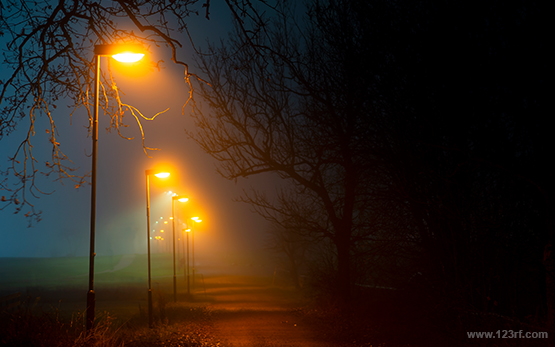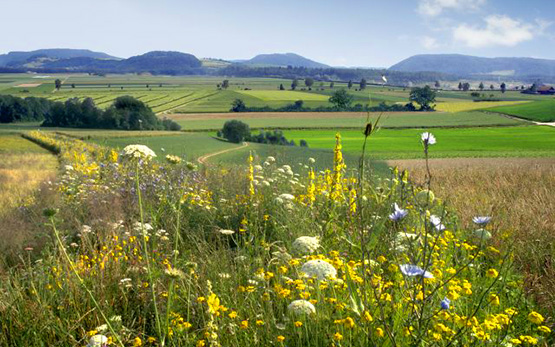Street lights and other forms of nighttime illumination alter the number of flower visits made by insects during the day as well as at night.
Agroscope and the University of Zurich demonstrated for the first time this indirect influence of artificial lighting on the interaction of pollinators and plants. Three plant species were found to receive significantly fewer and a further species slightly fewer pollination visits. By contrast, other plants were visited far more often and a further one somewhat more often during the day, despite nighttime illumination.
Beetles more active, dipterans less so
Interestingly, artificial light elicited different levels of activity from the nocturnal pollinators. The wood cranesbill (Geranium sylvaticum), for example, was visited with the same frequency on both artificially lit and non-illuminated meadows, but the insect visitors differed: whereas dipterans avoided the light, beetles tended to be attracted by it. Similar tendencies were also seen for two further plant species.
Publication
Giavi S., Fontaine C., Knop E. (2021) Impact of artificial light at night on diurnal plant-pollinator interactions. Nature Communications, 16. März 2021. Doi: 10.1038/s41467-021-22011-8







